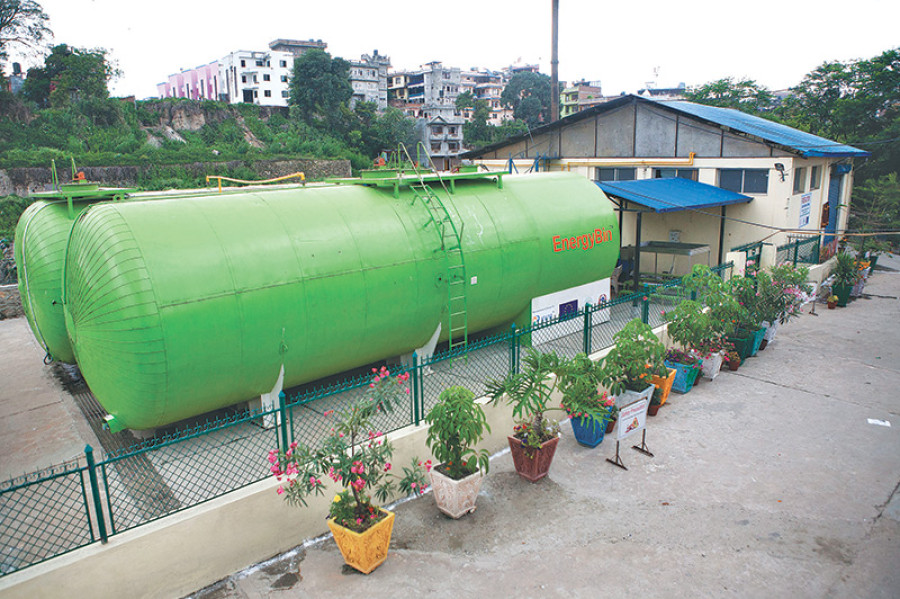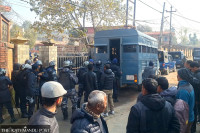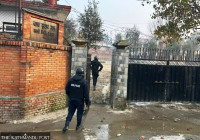Valley
KMC’s bioplant in Teku starts producing fuel
Following a long test production, the Kathmandu Metropolitan City (KMC) has officially started generating energy from bio-degradable waste.
Following a long test production, the Kathmandu Metropolitan City (KMC) has officially started generating energy from bio-degradable waste.
Under the Integrated Sustainable Solid Waste Management Project that started around four years ago, the KMC aims to produce 14KW of electricity, 300 kg of organic fertilizer and 13,500 litres of water on daily basis from three metric tonnes of organic materials. The project has a joint investment of Rs18.2 million of the KMC and the European Union (EU).
Newly elected KMC Mayor Bidhya Sundar Shakya and EU’s Ambassador to Nepal Rensje Teerink jointly inaugurated the plant amid a function in Kathmandu on Tuesday. Speaking on the occasion, Mayor Shakya said many problems in Kathmandu could be resolved once waste of the city is managed properly.
Ambassador Teerink pointed out the need for making Kathmandu as a beautiful and clean city.
Having successfully produced methane gas through its biomethanation plant during a year-long test run,
the KMC plans to use
methane gas for producing electricity.
“This move would certainly encourage Kathmandu denizens to keep their houses and premises clean” said KMC Spokesperson Gyanendra Karki.
“We have envisioned sustainable development for which this is our first step.”
The plant is currently using degradable domestic waste collected from wards 12 and 19 to generate the energy, according to Karki. Ward 12 generates around 19.04 cubic
metre of solid daily and Ward 19 churns out 14.53 cubic metre of waste.
“Waste collected from the two wards will not be adequate to produce the desired amount of energy,” Karki added.
“We will start collecting degradable waste from other wards as soon as the production process picks up pace.”




 9.12°C Kathmandu
9.12°C Kathmandu











